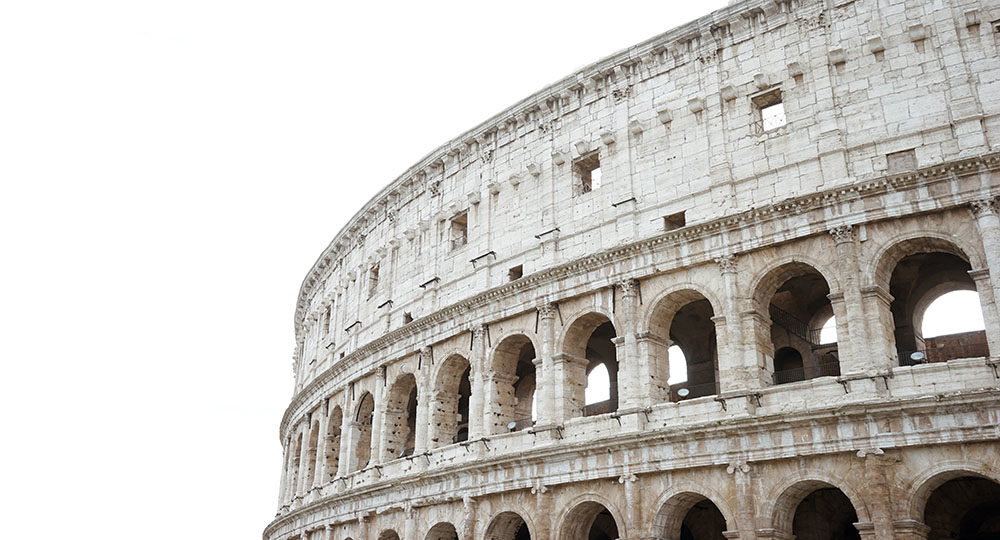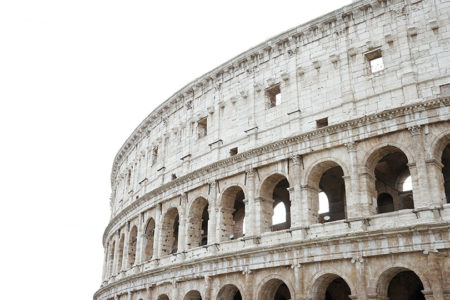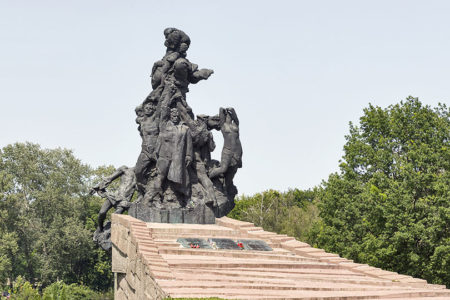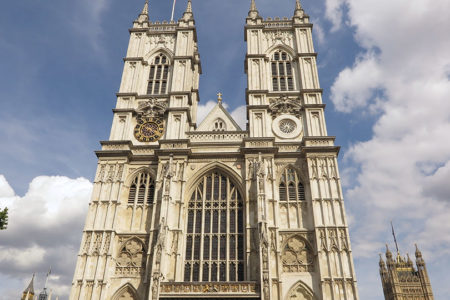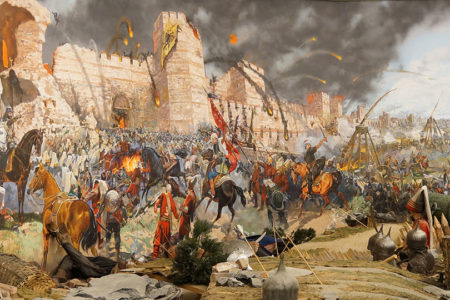Seeds of the Great Persecution
Genuine Christianity has never been popular. Christians are tortured and killed today throughout the world, following in the footsteps of their brethren in the early church who endured persecution and martyrdom at the hands of Rome, rather than renounce their faith in Jesus as Lord.
Martyr is a Greek word that means “witness.” In the New Testament, it is used for those who bore a faithful testimony for Christ. It is also used for those whose faithful witness ended in a faithful death (Rev. 2:13).
As ancient Rome’s persecution of Christians increased, more believers were called on to forsake their faith or face death. These godly men and women have been known as martyrs of the early church. And as the world today grows steadily more hostile to Christianity and the Christian gospel message that salvation comes through Christ alone, the early church’s history grows ominously more relevant.
Rome and Politics
In its earliest days, the Christian church enjoyed protection from the Roman authorities since it was identified as a branch of Judaism. But when the largely Gentile church outgrew its Jewish connection in the second century, Rome began to view it with suspicion. Such seeming disloyalty soon led the authorities to fear rebellion from the followers of Jesus—an act punishable by death.
Roman persecution of Christianity was at first sporadic and local. An example of it is revealed in the Emperor Trajan’s correspondence in A.D. 112 with Roman Governor Pliny in Pontus. After asking how to treat Christians who had been accused of disloyalty, the emperor replied,
It is impossible to lay down a general rule to a fixed formula. These people must not be hunted out; if they are brought before you and the charge against them is proved, they must be punished, but in the case of anyone who denies that he is a Christian, and makes it clear that he is not by offering prayers to our gods, he is to be pardoned.1
As the church grew, Rome saw it as a threat because the Christians’ supreme allegiance was not to the Roman Empire but to God and church. The authorities considered such attitudes disloyal and even treasonous, especially since Christians would not serve in the Roman army because it required sacrifice to the Roman gods for protection.
Threats from the northern barbarians, as well as natural disasters, caused the Empire to seek a scapegoat. And the emperor found one in Christianity. Rome’s easiest explanation was that dis-loyal Christians had displeased the gods. In addition, the 1,000th anniversary of the Roman Empire reminded the Romans of their religious roots in the ancient deities.
To placate the “offended gods,” Emperor Decius issued an edict in A.D. 250 forcing all citizens to sacrifice yearly to the Roman deities and the “divine” emperor. Although some Christians denied their faith, others remained steadfast and entered eternity as martyrs. Emperor Valerian resumed severe persecution in 257, seizing church property and executing many church leaders. This onslaught lasted only one year due to the emperor’s death, but it prepared the church for worse days to come.
Those days arrived when Emperor Diocletian issued an edict in 303 ordering the destruction of church buildings, the imprisonment of church leaders, and the burning of Christian Scriptures. The edict also demanded every citizen publicly sacrifice to the pagan gods.
Countless believers lost their lives during this time, known as the Great Persecution. The oppression ended when Emperor Galerius issued an edict of toleration in 311, followed by the Edict of Milan in 313, instituted by Emperor Constantine. The latter granted freedom of worship to all religions and ended the empire-wide persecution and martyrdom of the previous 10 years.
Christian Devotion and Absolutes
The simple confession of those about to be martyred was, “I am a Christian.” These followers of Christ were marked by their devotion to the lordship of Jesus Christ, their separated lifestyles, and their adherence to scriptural absolutes.
Before they became believers, they lived in Rome’s pluralistic society where multiple gods were worshiped and all gods were respected. The Christian message conflicted with their society’s values. Christians did not attend the theaters or worship at the pagan temples. They appeared to be antisocial because they lived differently and refused to worship the emperor or honor the pagan gods. “Jesus is Lord” was their motto.
Word began to spread that these Christians were cannibals since the Lord’s Supper was misunderstood as eating and drinking the body and blood of Christ. Believers further were accused of incest because they referred to themselves as brothers and sisters in one community. Their godly lives contrasted dramatically with the physically sensuous, religiously tolerant world around them. In short, Christian absolutes conflicted with Roman tolerance, much as they conflict with the West’s idea of tolerance today.
In loving deeds and bold words, the Christians made exclusive claims to truth. Clashing worldviews brought Christians under the empire’s wrath. Their leaders encouraged them to be faithful if put on trial, yet many succumbed to pressure and recanted their faith.
Unlike today’s Muslim suicide bombers, these Christians never sought death or viewed martyrdom as an act of war. They simply saw themselves as imitating the faithful men and women of previous generations who were led to the slaughter for their faith in Christ. Their primary example was their Lord and Messiah who had also given His life.
Instead of reducing the church’s influence, however, death only promoted its growth. Around A.D. 200, Tertullian wrote, “The oftener we are mown down by you, the more in number we grow; the blood of Christians is seed.”2
Eusebius, the first church historian (A.D. 260–339), declared that persecution came to the church because of its “arrogance and sloth”:
We began envying and attacking one another, making war on ourselves with weapons formed from words. Church leaders attacked church leaders and laymen formed factions against laymen, while unspeakable hypocrisy and pretense reached their evil limit.3
Eusebius laid the blame for persecution on a sinful church, ripe for discipline by her Lord:
I saw with my own eyes the houses of worship demolished to their foundations, the inspired and sacred Scriptures committed to flames in the middle of the public squares, and the pastors of churches hiding shamefully in one place or another, or arrested and held up to ridicule by their enemies. But I will neither describe their wretched misfortunes nor record their quarrels and inhumanity to each other prior to the persecution, only enough to justify the divine judgment.4
Martyrdom and Its Aftermath
Eusebius’ eyewitness account is powerful:
I myself saw some of these mass executions by decapitation or fire, a slaughter that dulled the murderous axe until it wore out and broke in pieces, while the executioners grew so tired they had to work in shifts. But I also observed a marvelous eagerness and a divine power and enthusiasm in those who placed their faith in Christ: as soon as the first was sentenced, others would jump up on the tribunal in front of the judge and confess themselves Christians. Heedless of torture in its terrifying forms but boldly proclaiming their devotion to the God of the universe, they received the final sentence of death with joy, laughter, and gladness, singing hymns of thanksgiving to God until their last breath.5
When persecution waned in the fourth century, Christians hungered for signs of devotion in a church that was growing increasingly comfortable and corrupt. They looked back to the past and glorified those who had had the spiritual courage to experience martyrdom. Christians began to celebrate the anniversary of a martyr’s death with a religious feast and to venerate relics of the bodies of the martyrs.
Sadly, the Christian church twisted the memory of godly heroes into objects of worship and prayer. The absence of martyrs at that time caused Christians to seek alternative signs of sacrifice. They may not have had to die physically for Christ, so they explored ways they could die spiritually. Thus began the monastic movement. Those who embraced this calling died to the duties of marrying, parenting, working, and socializing. The monks promoted such denial as the ultimate act of sacrificial devotion. In so doing, the church corrupted the image of godliness into an unnatural, unscriptural, man-made version of holiness.
As the world grows steadily colder to Christianity, the church of Jesus Christ must remember her heroic past and look to her heavenly Lord for strength and boldness to continue proclaiming the good news of the Messiah in an evil, hostile world.
ENDNOTES
- Robert L. Wilken, The Christians as the Romans Saw Them, 2nd ed. (New Haven: Yale University Press, 2003), 28.
- Tertullian, “Apology,” The Ante-Nicene Fathers, Vol. 3: Latin Christianity: Its Founder, Tertullian, ed. Alexander Roberts and James Donaldson (reprint; Grand Rapids: Eerdmans, 1993), chap. 50.
- Eusebius—The Church History: A New Translation With Commentary, trans. Paul L. Maier (Grand Rapids: Kregel, 1999), 289.
- Ibid., 290
- Ibid., 298.
